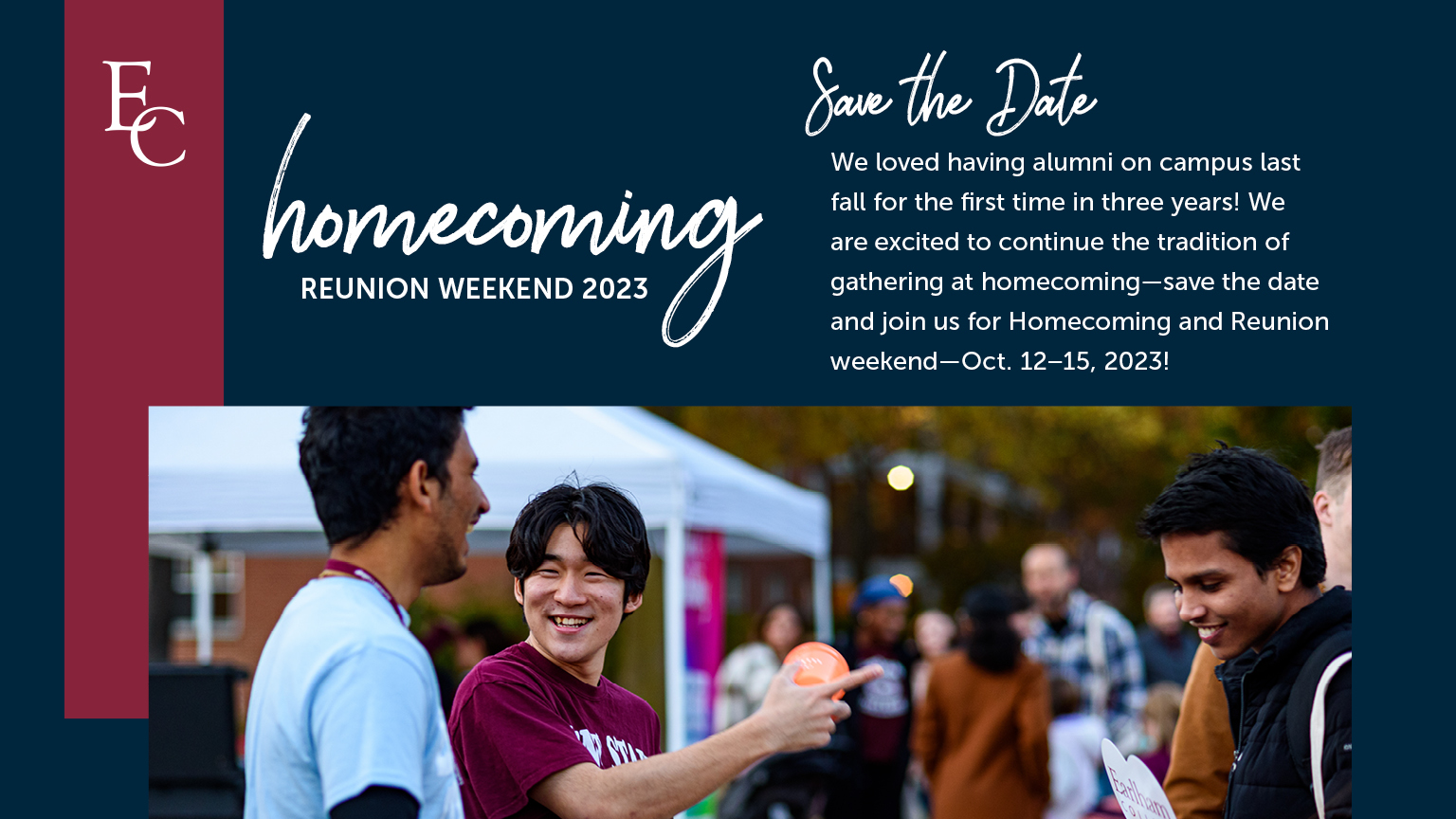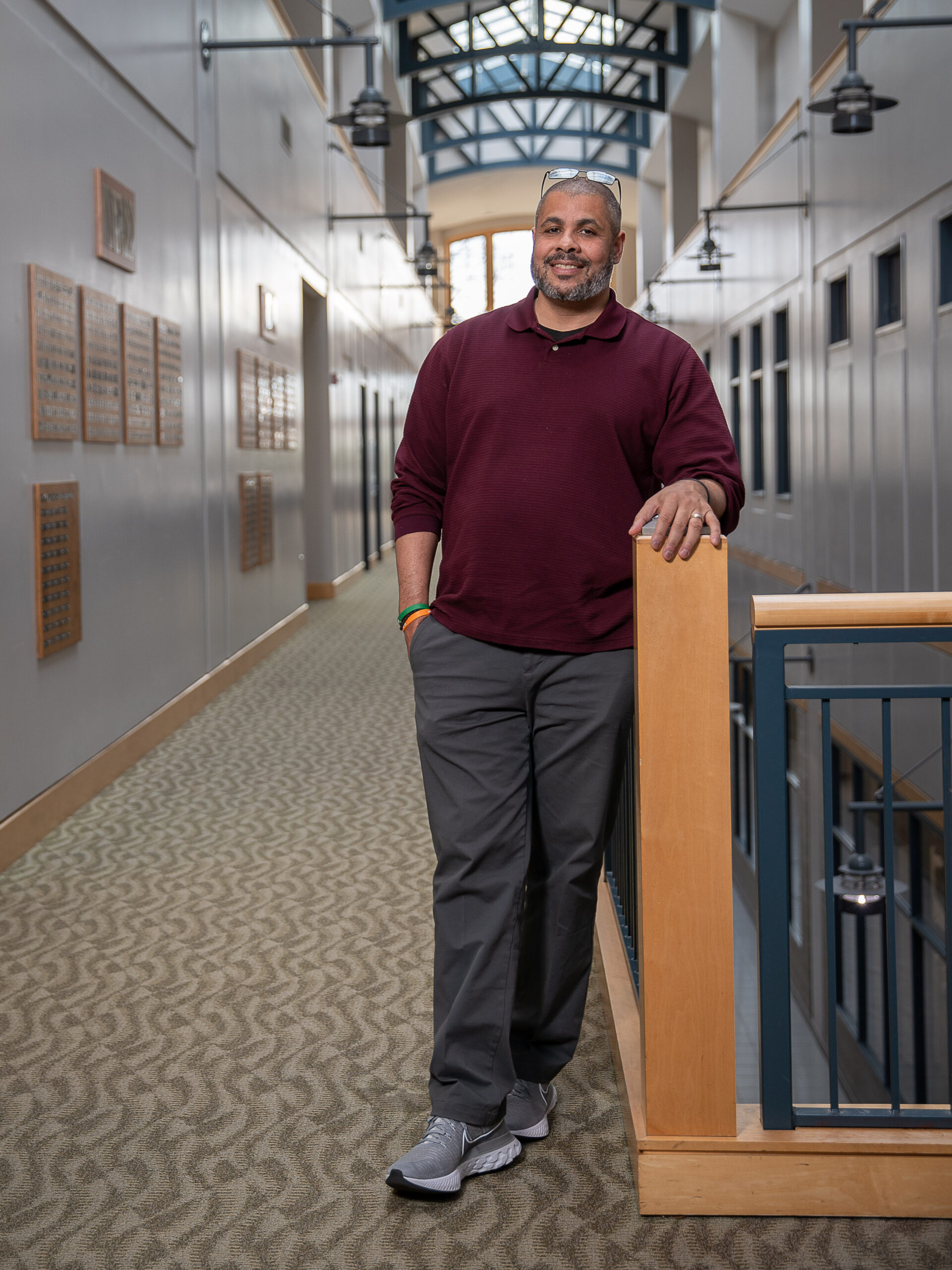
“Every activity in our facility is an act of engaging with the Earlham community.”
Adam Hutchinson, director of athletics
Adam Hutchinson, Earlham’s athletic director since 2021, knows a lot about student-athletes and just a bit about basketball as well. Before he became an administrator, he coached the sport for more than 20 years. If you ask him about 3-pointers, however, you might get a dose of economic theory rather than a lesson on form. He’ll explain that opportunity costs, the idea that you lose out on some opportunities and possible gains because of an alternative action, are the key to under- standing whether a shot was worth taking.
He looks at the bigger picture as well when talking about Earlham athletics. That means seeing student-athletes as integral to what Earlham College itself is, not somehow separate from it. For Hutchinson, “Every activity in our facility is an act of engaging with the Earlham community. Student-athletes are fully students and fully athletes, contributing to the Earlham community as both.”
Hutchinson has been involved in collegiate athletics as a player, coach or administrator for more than 30 years. He played basketball for and earned his undergraduate degree from Amherst College. Thanks to distinguishing himself as an undergrad, Hutchinson then went on to win an NCAA Graduate Scholarship for Careers in Athletics, which he applied to earning a master’s in sports management from the University of Massachusetts at Amherst.
Hutchinson came to Earlham from Kean University in New Jersey, where he coached basketball and served as assistant director of athletics for internal operations and student-athlete evelopment. Other coaching stints included Amherst College, Washington & Lee University, Case Western Reserve University, and Stevens Institute of Technology. As head men’s basketball coach for 14 seasons at Washington & Lee University in Lexington, Virginia, he became the second-winningest coach in program history.
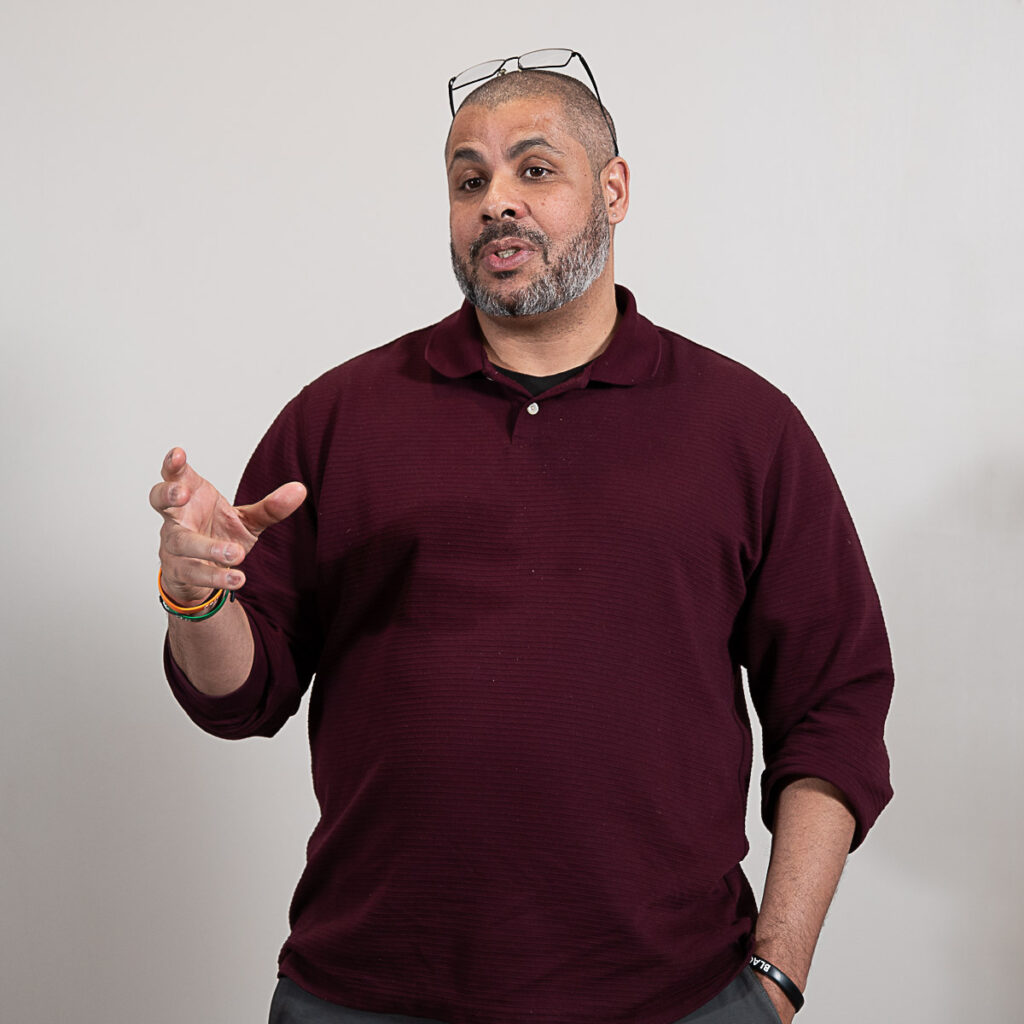
What’s your vision for Earlham athletics, and how do you share that vision?
My vision is to provide an athletic experience that challenges us, promotes growth and builds community. I think that as an athletic director, there’s a lot that goes into that. The athletes show up, practice hard, lift hard, train hard, reflect on what they did and come back the next day. For an AD it’s different. We have to hire coaches who share our vision or are capable of sharing it. We have to help our coaches navigate the course of their coaching career, develop their skills, anticipate facility needs so that we have the facilities required to attract and retain student athletes, and provide top-shelf competition experiences. That’s all part of being an AD.
As far as sharing that vision, we structure our department meetings differently than other schools might. Instead of giving our coaches a lot to remember, we give them a lot to think about. I challenge them to think about issues facing athletics and what they can do about it.
How do you look out for student-athletes in athletics?
The most important takeaway that I have from my career as an athlete was the importance of developing healthy habits and making decisions that promote my long-term well-being. So, we promote healthy life habits in our student athletes and reinforce that with our coaches. And that discussion is not limited to physical well-being. Mental well-being also includes creating an environment where diverse student athletes are able to thrive.
One of the other ways we’re working on building a supportive environment is by restoring the Black Latin Athlete Advisory Committee, BLAAC, to facilitate conversations about the intersection of athletics, race, and mental well-being on college campuses. The motivation behind that effort is the welfare of our student-athletes.
What student-athletes are a great fit at Earlham?
So, there’s a difference between having a good experience and having a meaningful experience. Very often in athletics, we’ll define a good experience as one where you get what you want in some way. But meaningful experiences often stretch us challenge us to grow—and sometimes that involves not getting what we want right away to become our best selves. The student-athletes who fit best are those who are able to see their careers that way. They value the journey, not just the destination.
We’re looking for resilient people for our teams. We don’t control all of the circumstances that we face, but we always control how we react to them. I think an excellent example of this was the 2022 baseball team where many players had to earn their way onto the playing field over a number of years. Last year they were conference champions and made it to the NCAA Tournament, and you might not have seen that outcome when they were in their freshman year. Those are the kind of student athletes that we’re looking for here.
Hiring is one of the toughest tasks that a leader takes on. How do you find coaches who are the right fit?
The first thing we do is try to define “right fit” broadly. We don’t necessarily look for coaches who think exactly the way we think, but we definitely search for shared values like care for the well being of our student-athletes. Mostly I think we’re looking for two things: coaches who are organized and effective recruiters and coaches who are organized and effective teachers. And beyond that, being an inclusive community means that the fit is broad so if you were to spend time in our hallways, you would find coaches of various ages, various races and ethnic backgrounds. We’re intentional about not asking people to fit into a box.
Sportsmanship might seem like an old-fashioned concept to some. What is the place of sportsmanship in Earlham athletics?
So, I don’t think it is an old-fashioned concept. How we respond to success and to failure is very, very important. If we allow ourselves to be governed by emotion, that does not advance sportsmanship at all. Win or lose, our opponents bring out the best in us. We respect them. The message we want to get across to student-athletes is to focus on the process and not just the outcome.
Where do you see Earlham Athletics heading and how are you going to help get it there?
I think there are a couple of steps to improvement. First, we need to control what’s controllable as coaches and staff members. The final outcomes of games may or may not go the way we want, but we can own our part of the effort. We can think long-term and tilt things in our favor by respecting the process. Point two, is to establish stability by retaining coaches. We want to have coaches who have successes and can reflect back on what steps they took to succeed and then implement those same steps. Success means doing little things right again and again.
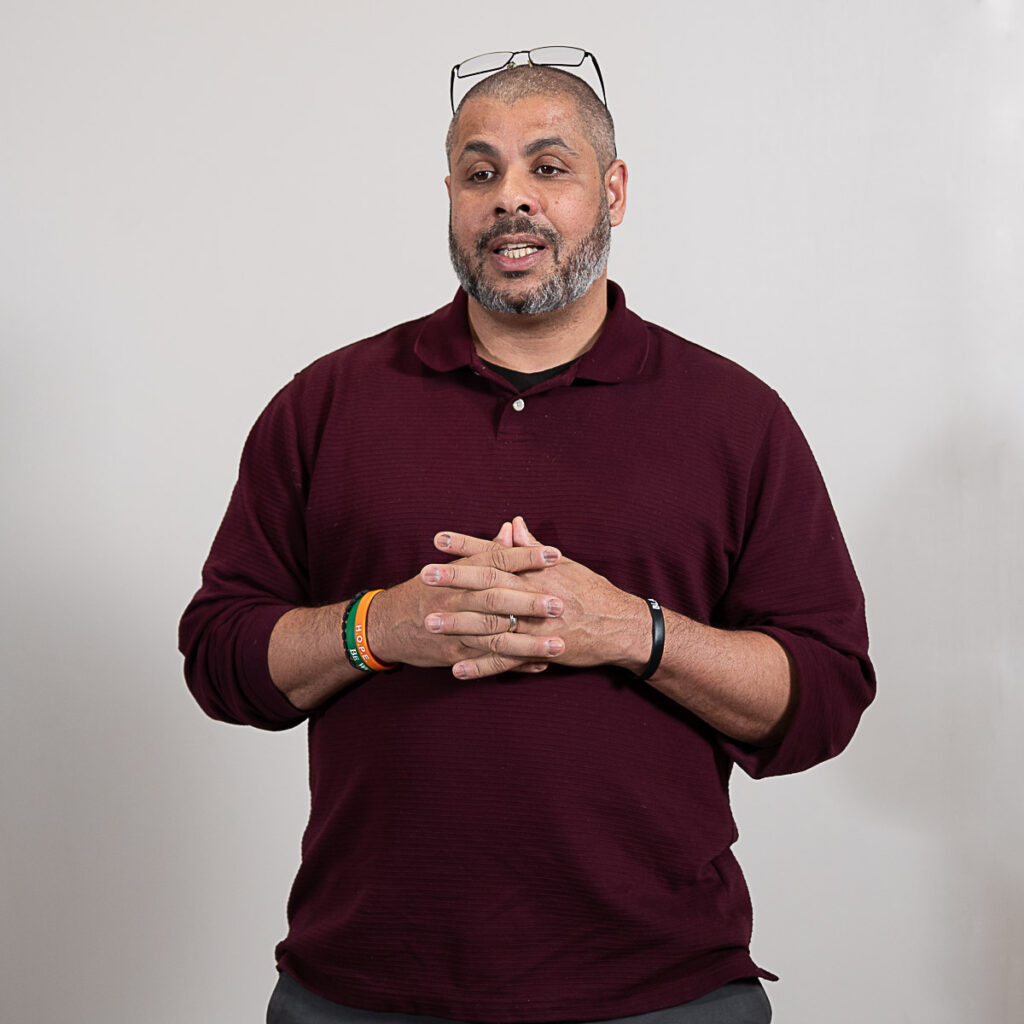
Historically, where do NCAA DIII athletics stand as far as diversity and inclusion? How does Earlham compare in this regard, and where are you working to take Earlham?
Historically, DIII athletic departments have not advanced diversity, equity, inclusion and justice. Less than 6 percent of head coaches in DIII are Black. Fewer than 4 percent of athletic directors in DIII are Black—an underrepresentation for the general population and when compared to the number of DIII student-athletes. There’s clearly a trend that instead to being agents of diversity, equity, inclusion and justice on campus, DIII athletic departments actually reinforce hierarchical outcomes.
I’m an outlier as a Black athletic director. Our associate athletic director, Nick Johnson ’01, is also Black. A third of our department is non-white. We’re among the leaders within DIII by a sizeable margin. That’s counter to the narrative often given by colleges: that colleges can’t find any qualified applicants of color, they won’t come to our small town even if we did recruit them, and if they would come, they’re just going to leave anyway. In the two years I’ve been here, we were able to find qualified Black and brown candidates. Also, as far as the admissions perspective, our applications are up and deposits are up. We’re doing good work, the culture in our department is strong and this can be repeated elsewhere.
We can consider our role more broadly as well. If it is self-evidently true, as it says in the Declaration of Independence, that we are created equal, then that should be reflected in policing, it should be reflected in respect for people’s rights. It should be reflected in health care, education, hiring, etc. It’s my hope that instead of our country and DIII being organized along lines of race, gender, sexual orientation, etc., that we can learn to organize ourselves through our commitment to truth, justice and each other. I firmly believe DIII athletic departments can and should be leading in this effort.
Interview and photography by Dan Oetting.
Standout Quakers
Volleyball
The Quakers earned third place in the conference standings with a 13-15 record and a 6-3 mark in conference play. After defeating Bluffton 3-0 at home in the opening round of the conference tournament, the Quakers fell to Mount St. Joseph in five sets in the conference semifinal. Maria Young was named to the All-HCAC first team after leading the Quaker offense for the second consecutive season. The junior scored 356 kills and had a .202 attack percentage for the season. Young also scored 33 aces and 42 blocks. Liv Kyrk ’24 earned first team All-HCAC honors with 233 kills and a .246 hitting percentage. Kyrk tallied 55 blocks throughout the regular season and the junior was top-10 in the conference in hitting percentage and top-15 in kills. Erin Wagner ’23 also placed in the first team list as a setter for the Quakers. She tallied 908 assists in the season and averaged 8.5 assists per set.
Wagner also led the Quakers in service aces with 37 and she collected 312 digs. Jen Shamel was awarded second team honors as the leading libero for the Quakers. Shamel collected 476 digs during the season and averaged 4.4 digs per set. In 427 service receptions, Shamel posted a 93 percent reception percentage. Offensively, she contributed 20 service aces and 62 assists.
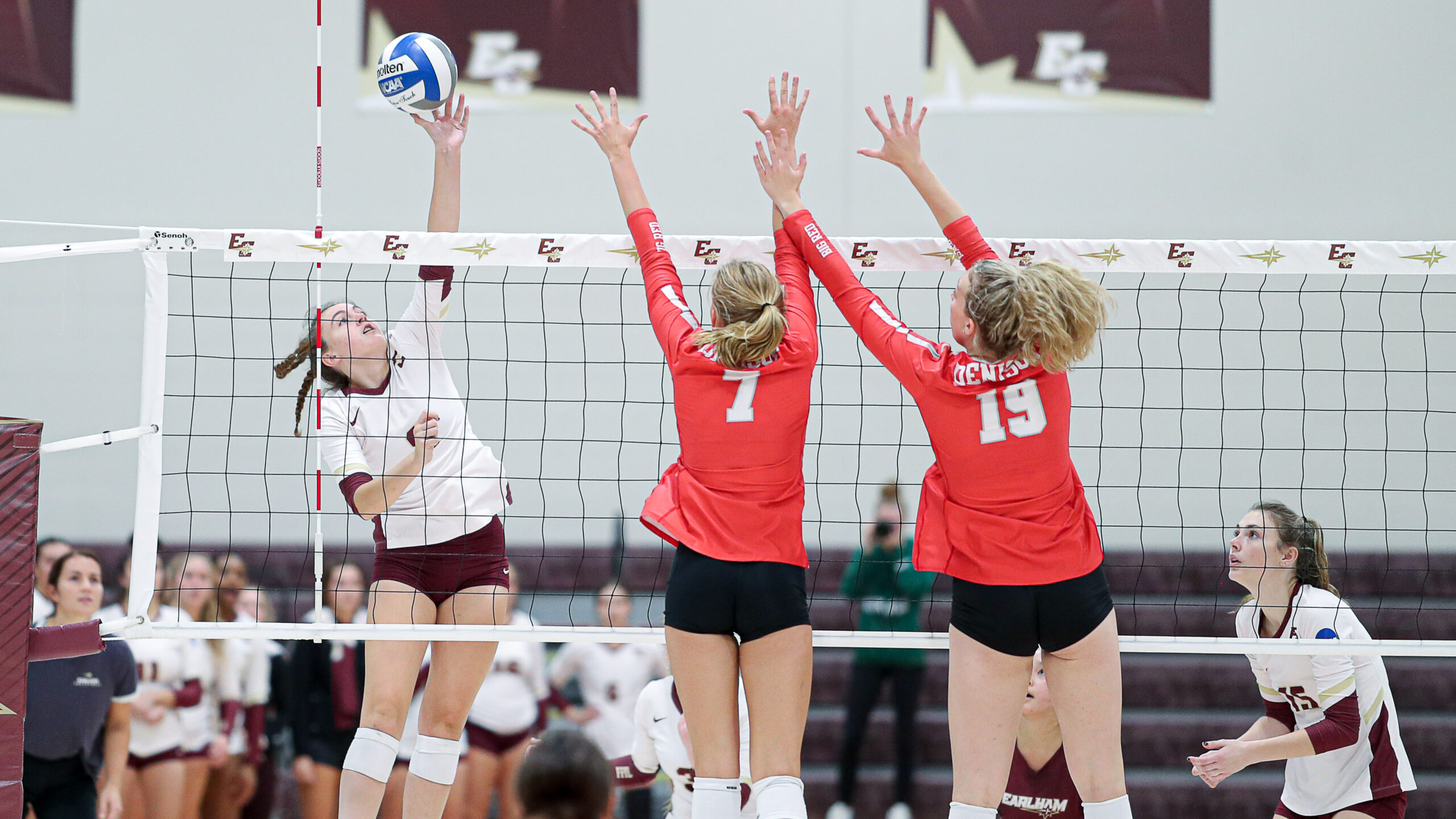
Maria Young
Women’s Soccer
First-year Mallory Smith earned a spot on the HCAC second team listing after a breakout rookie season. The forward was second on the team in offensive points, with three goals and three assists. Sophomore Quin Doden received honorable mention honors for the second straight season with the Quakers. Also earning honorable mention was sophomore Makayla Hurey. Hurey had a 5-5-3 record in goal and made 79 saves on the season. The Quakers concluded their season with a 2-2 tie against Anderson University. With a 5-7-3 (3-5-1) record, Earlham finished in seventh place in the final HCAC standings to narrowly miss out on a playoff spot.
Men’s Soccer
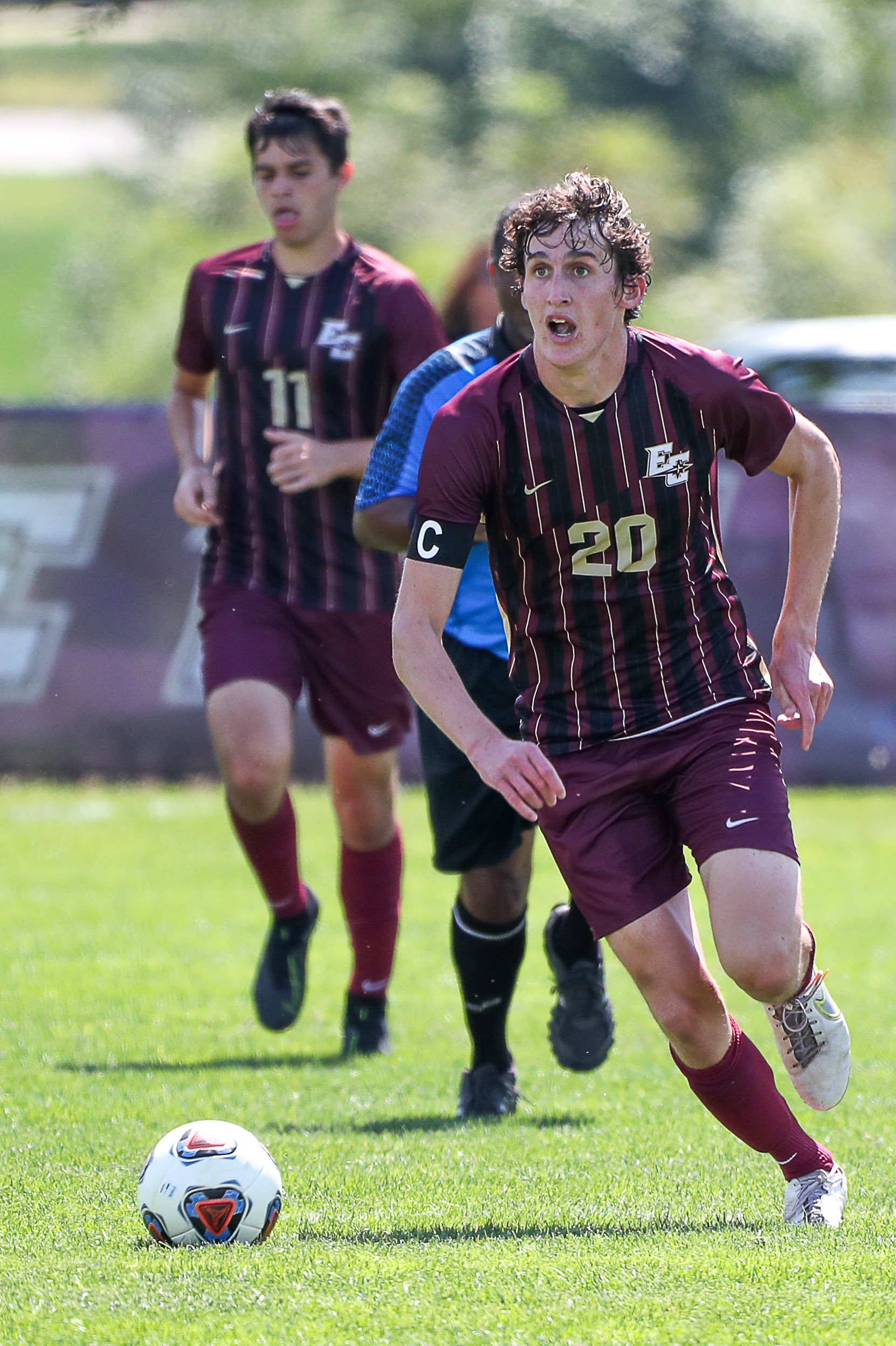
Quentin Berry
Quentin Berry ’24 earned HCAC second team honors for his efforts this season. The point man up top for the Quakers, Berry led the squad in points with four goals and five assists. Sophomore Braden Guinn was named to the honorable mention team after leading EC in goals this season. Guinn scored five goals, including two game-winners. He also dished out one assist. Earlham concluded its season with a 3-12-1 (1-8 HCAC) record.
Cross Country
Alex Roberts ’23 earned HCAC all-conference honors on the men’s side with a seventh-place individual finish. Ian Gorley ’23 and Lily Schamel ’25 received honorable mention. Earlham’s teams finished in eighth place at the 2022 HCAC Championship meet.
Women’s Tennis
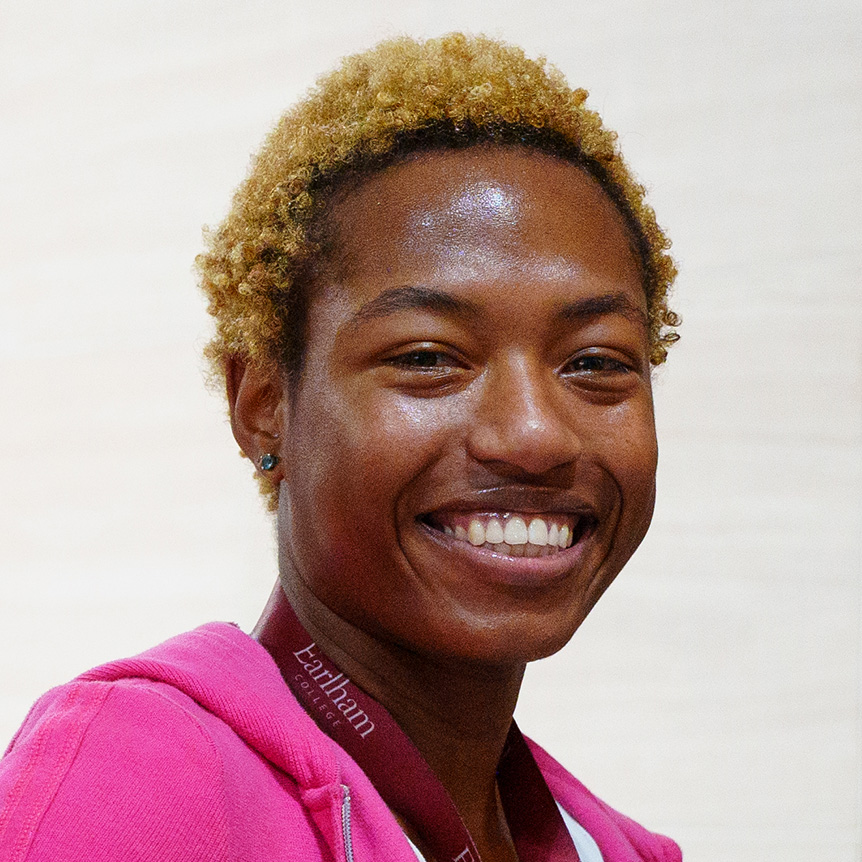
Maddie Cherry, a sophomore, made the HCAC all-conference team, the first time a Quaker women’s tennis player has earned the distinction since 2018. Cherry finished her conference season with a 4-2 record at
Regan Seeman ’23 earned a spot on the NCAC all-conference second team. Seeman led the Quaker offense with four goals and one assist on the season. Seeman started every game at forward for the Quakers and was the primary distributor on penalty corners. Karina Steitz ’23 earned Alex Roberts ’23 earned HCAC all-conference honors on the men’s side with a seventh-place individual finish. Ian Gorley ’23 and Lily Schamel ’25 received honorable mention. Earlham’s teams finished in eighth place at the 2022 HCAC Championship meet. honorable mention status for her role on the Quaker defensive unit. Steitz’s three defensive saves and her defense helped force a shutout against Oberlin. Junior goalkeeper Rachel Alma earned honorable mention for her efforts this season. Alma started all 18 games and collected 114 saves.
Field Hockey
Regan Seeman ’23 earned a spot on the NCAC all-conference second team. Seeman led the Quaker offense with four goals and one assist on the season. Seeman started every game at forward for the Quakers and was the primary distributor on penalty corners. Karina Steitz ’23 earned honorable mention status for her role on the Quaker defensive unit. Steitz’s three defensive saves and her defense helped force a shutout against Oberlin. Junior goalkeeper Rachel Alma earned honorable mention for her efforts this season. Alma started all 18 games and collected 114 saves.
Stories by Adam Knaub.
Like what you’ve read? Share this article with your network.
